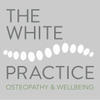A large part of the population is at risk of being zinc deficient. Few get enough from their diet, and this deficiency plays a role in a nearly every major disease.
Zinc's main role is the protection and repair of DNA (the genetic material of nearly all living cells) so therefore it is found in higher levels in animals and fish rather than plants, therefore a vegetarian diet may easily become low in zinc.
Oysters are popularly known as an aphrodisiac but are also the highest source of zinc for both men and women, which is essential for fertility.
Other food containing high levels of zinc are pumpkin/sesame seeds, pecans, cashews, peanuts, egg yolks, brewer's yeast, soy beans and wheat term, oats and organic vegetables, particularly the root vegetables like carrots.
Herbs that contain zinc are fennel, parsley, sage and alfalfa. Zinc plays a vital role in many immune system reactions. It promotes the destruction of foreign particles and micro-organisms, it acts as a protectant against free radical damage as well as inhibiting the growth of several viruses, including common cold viruses and herpes simplex viruses (cold sore) - with this condition the zinc can also be applied topically.
Signs of being low in zinc are growth failure in children, slow wound healing, frequent infections, infertility, lack of appetite, and poor sense of taste and smell. Finger nails become thin, peel and show the presence of white spots. Adequate zinc levels are particularly important in the elderly, results of studies show that increased numbers of T cells and enhanced cell-dedicated immune responses occur, so it is particularly important now with the onset of winter. For further information please speak to Ruth directly.
Zinc's main role is the protection and repair of DNA (the genetic material of nearly all living cells) so therefore it is found in higher levels in animals and fish rather than plants, therefore a vegetarian diet may easily become low in zinc.
Oysters are popularly known as an aphrodisiac but are also the highest source of zinc for both men and women, which is essential for fertility.
Other food containing high levels of zinc are pumpkin/sesame seeds, pecans, cashews, peanuts, egg yolks, brewer's yeast, soy beans and wheat term, oats and organic vegetables, particularly the root vegetables like carrots.
Herbs that contain zinc are fennel, parsley, sage and alfalfa. Zinc plays a vital role in many immune system reactions. It promotes the destruction of foreign particles and micro-organisms, it acts as a protectant against free radical damage as well as inhibiting the growth of several viruses, including common cold viruses and herpes simplex viruses (cold sore) - with this condition the zinc can also be applied topically.
Signs of being low in zinc are growth failure in children, slow wound healing, frequent infections, infertility, lack of appetite, and poor sense of taste and smell. Finger nails become thin, peel and show the presence of white spots. Adequate zinc levels are particularly important in the elderly, results of studies show that increased numbers of T cells and enhanced cell-dedicated immune responses occur, so it is particularly important now with the onset of winter. For further information please speak to Ruth directly.

 RSS Feed
RSS Feed